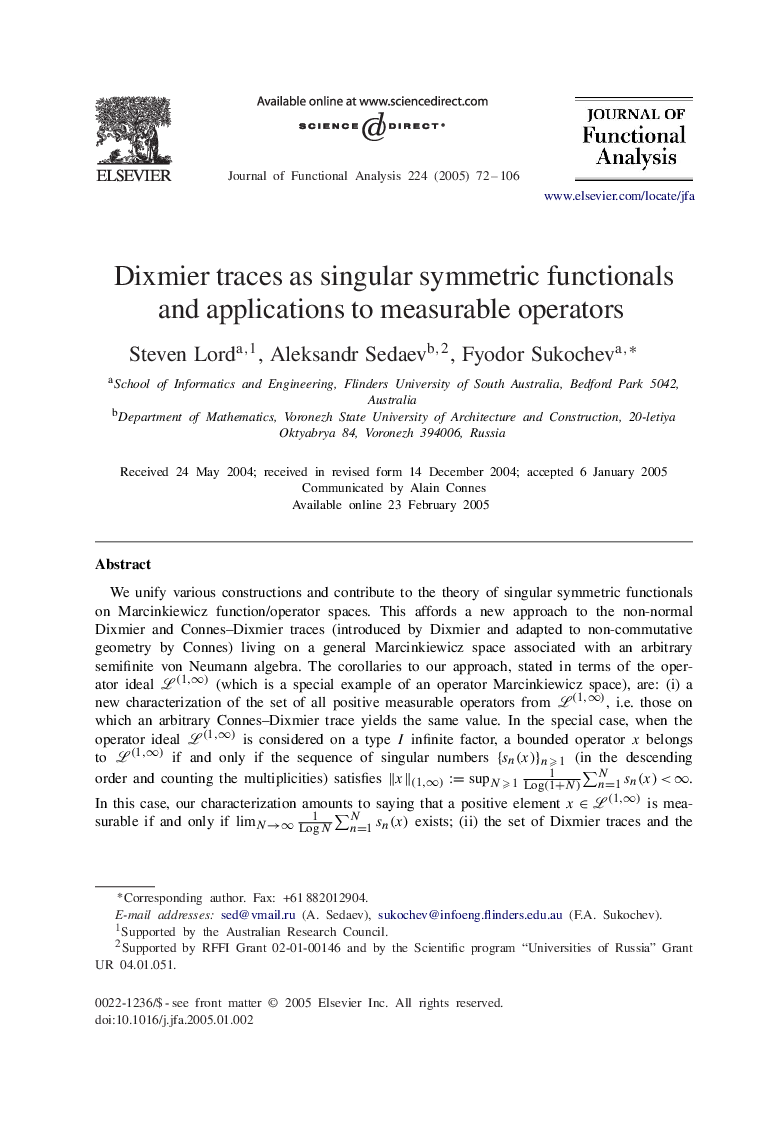| Article ID | Journal | Published Year | Pages | File Type |
|---|---|---|---|---|
| 9495459 | Journal of Functional Analysis | 2005 | 35 Pages |
Abstract
We unify various constructions and contribute to the theory of singular symmetric functionals on Marcinkiewicz function/operator spaces. This affords a new approach to the non-normal Dixmier and Connes-Dixmier traces (introduced by Dixmier and adapted to non-commutative geometry by Connes) living on a general Marcinkiewicz space associated with an arbitrary semifinite von Neumann algebra. The corollaries to our approach, stated in terms of the operator ideal L(1,â) (which is a special example of an operator Marcinkiewicz space), are: (i) a new characterization of the set of all positive measurable operators from L(1,â), i.e. those on which an arbitrary Connes-Dixmier trace yields the same value. In the special case, when the operator ideal L(1,â) is considered on a type I infinite factor, a bounded operator x belongs to L(1,â) if and only if the sequence of singular numbers {sn(x)}n⩾1 (in the descending order and counting the multiplicities) satisfies â¥xâ¥(1,â)âsupN⩾11Log(1+N)ân=1Nsn(x)<â. In this case, our characterization amounts to saying that a positive element xâL(1,â) is measurable if and only if limNââ1LogNân=1Nsn(x) exists; (ii) the set of Dixmier traces and the set of Connes-Dixmier traces are norming sets (up to equivalence) for the space L(1,â)/L0(1â), where the space L0(1,â) is the closure of all finite rank operators in L(1,â) in the norm â¥.â¥(1,â).
Related Topics
Physical Sciences and Engineering
Mathematics
Algebra and Number Theory
Authors
Steven Lord, Aleksandr Sedaev, Fyodor Sukochev,
